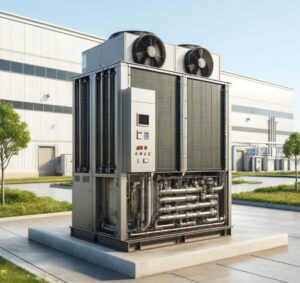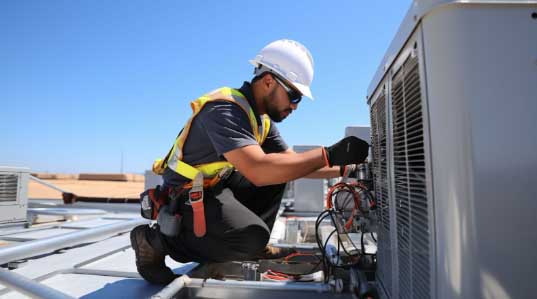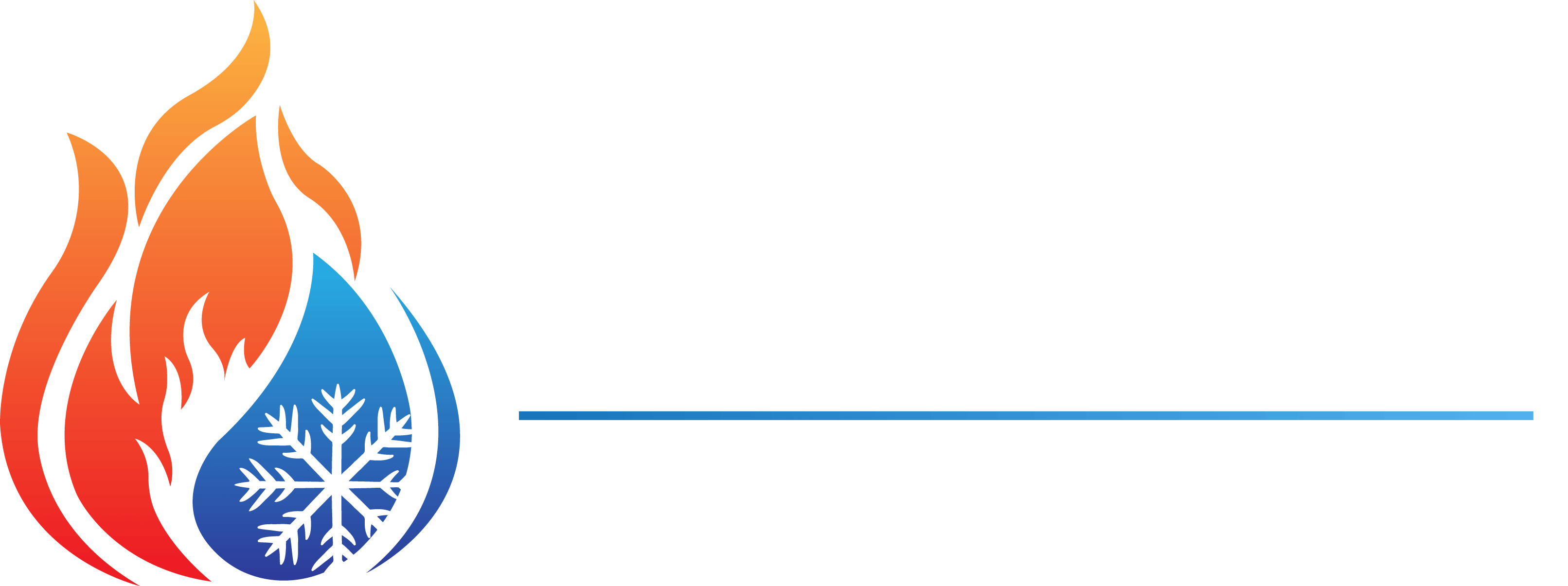Advance Your HVAC Career with The Chiller Mechanic Program
Introduction
Are you an advanced-level HVAC technician or building maintenance personnel looking to deepen your expertise in chiller systems? Look no further!
Enroll in HVACwithJB’s comprehensive Online Chiller Training Program, powered by HVACRedu, designed to equip you with the necessary skills to operate, maintain, and troubleshoot chiller systems in commercial buildings.

The History of Chillers
Chiller technology has evolved significantly since its inception in the early 20th century. Initially developed to support industrial processes, chillers have become a cornerstone of modern HVAC systems, providing essential cooling for commercial buildings, hospitals, schools, and various other facilities.
Early chillers were bulky, inefficient, and required significant manual oversight. However, advancements in technology have led to more compact, energy-efficient, and automated systems that are integral to contemporary building management.
An early 20th-century HVAC chiller unit, showcasing the robust and industrial design of the first generation of chiller technology. The cast iron exterior and exposed mechanical components highlight the ingenuity and engineering prowess of the era.
Why Choose the Online Chiller Training Program?
Commercial buildings often rely on chilled water systems for comfort cooling, with chillers in various configurations serving different types of facilities.
From small and mid-size chillers in schools and medical offices to large central chiller plants in colleges, hospitals, and military bases, understanding these systems is crucial for efficient building operations.
Enroll in our Online Chiller Training Program to benefit from 12 courses, encompassing 36 learning modules, recognized for 36 hours of continuing education (CEHs), applicable to NATE recertification.
Each course is meticulously designed to cover various aspects of chiller systems, ensuring that you gain comprehensive knowledge and practical skills.

-Program Highlights-
202: High Efficiency HVAC System Maintenance Central Chillers
(6 hours/30 days)
Written by Chris Compton, this intermediate course introduces you to commercial central chiller systems. It covers the layout of various components, chilled water systems, and essential maintenance and record-keeping practices. Prerequisites include a strong working knowledge of HVAC/R fundamentals.
402: HVAC Packaged Chillers: 25 – 150 Tons
(9 hours / 30 days)
Crafted by Ron Auvil, this advanced course focuses on packaged chillers used in small and medium tonnage applications. It delves into operating characteristics, main components, maintenance, control, and troubleshooting of packaged chillers.
203: High Efficiency HVAC System Maintenance Cooling Towers
(6 hours/30 days)
This intermediate course provides an understanding of commercial cooling tower systems, their components, and required maintenance to ensure efficient operation.
403: HVAC Water Cooled Mid & Large Tonnage Chillers 150+ Tons
(15 hours/60 days)
Also written by Ron Auvil, this advanced course covers larger chiller systems, including screw and centrifugal chillers. It emphasizes operating characteristics, main components, maintenance, control, and troubleshooting, offering in-depth multiple field troubleshooting scenarios.
The Role of a Chiller Mechanic
As a chiller mechanic, your responsibilities involve a mix of routine maintenance, troubleshooting, and system optimization.
Enrolling in HVACwithJB’s Chiller Mechanic Program will prepare you for these diverse tasks. Your day-to-day duties might include inspecting chiller systems, checking for leaks, monitoring pressure levels, and ensuring all components are functioning correctly.
Regular maintenance tasks include cleaning coils, replacing filters, and calibrating controls. Troubleshooting is a critical aspect of your role, requiring you to diagnose issues, repair or replace faulty parts, and ensure the system runs efficiently.
Working on various types of chillers—from small packaged units to large central plants—means that no two days are the same. You’ll need a deep understanding of both mechanical and electrical systems, as well as the ability to read and interpret technical manuals and schematics.
Effective communication skills are also essential, as you’ll often need to explain complex technical issues to clients or other team members.

Job Statistics and Industry Outlook
According to the U.S. Bureau of Labor Statistics (BLS), employment for HVAC technicians is projected to grow 4% from 2019 to 2029, about as fast as the average for all occupations.
The increasing complexity of HVAC systems and the growing emphasis on energy efficiency and sustainability contribute to this demand .
HVAC technicians specializing in chiller systems are particularly valuable in commercial and industrial settings, where maintaining large-scale cooling systems is crucial for operations.
Additionally, the median annual wage for HVAC technicians was $50,590 in May 2020, with the top 10% earning more than $80,000 per year . Specializing in chiller systems can position you for higher earning potential and increased job stability.

Program Benefits
- Comprehensive Learning: The program covers a wide range of chiller systems, from small packaged chillers to large central plants, ensuring you gain a thorough understanding of various configurations.
- Continuing Education: Earn 36 hours of continuing education credits (CEHs) applicable to NATE recertification, keeping you up-to-date with industry standards.
- Expert Instruction: Learn from industry experts like Chris Compton and Ron Auvil, who bring years of experience and practical insights to the courses.
- Flexible Learning: The online format allows you to learn at your own pace, with 30 to 60 days to complete each course, making it ideal for working professionals.
Optional Related Course:
Water Treatment for HVACR Systems
Water quality is critical in HVACR systems. Our Water Treatment for HVACR Systems course, covers essential topics like water chemistry, treatment methods, and quality control. The course includes two levels:
- 292: Water Treatment for HVACR Systems I
(24 hours) - 293: Water Treatment for HVACR Systems II
(21 hours)

By enrolling in both the Chiller Mechanic Program and the Water Treatment course, you’ll be well-prepared to tackle a wide range of HVAC/R challenges, ensuring efficient and reliable system operations.
Need more guidance? Let us help you find the right course.
Ready to Launch Your HVAC Career?
Explore our certification programs and discover how HVACwithJB can help you achieve your goals!
